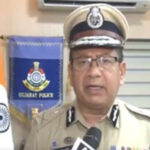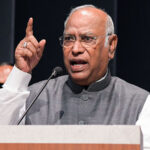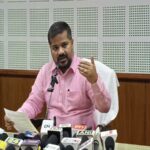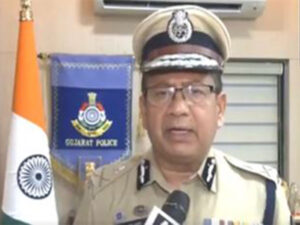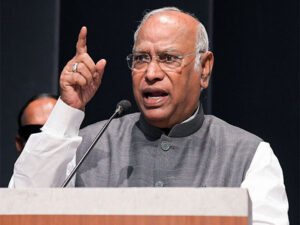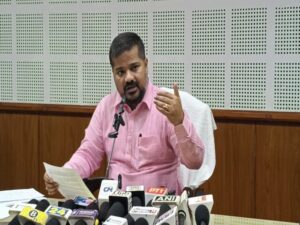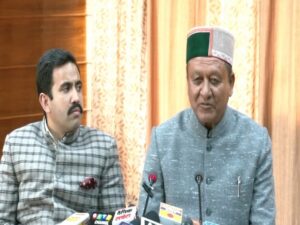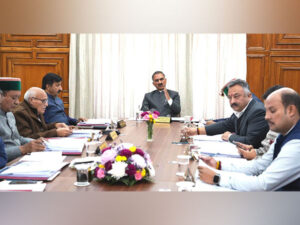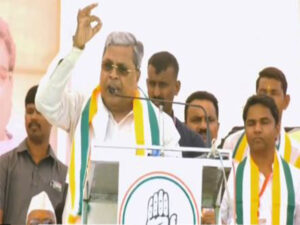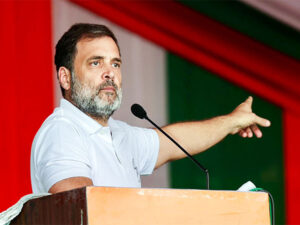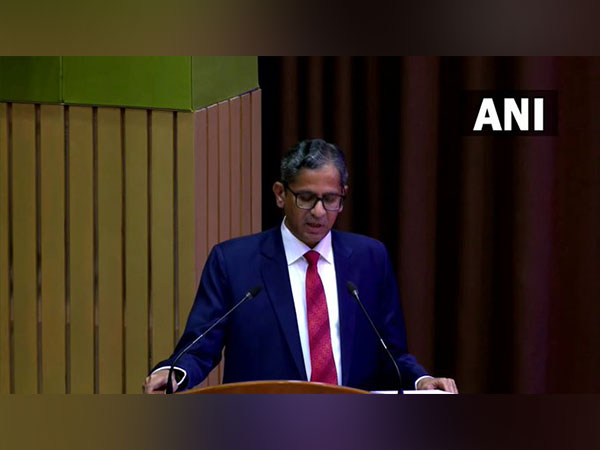
New Delhi [India], August 26 (ANI): The outgoing Chief Justice of India (CJI) NV Ramana on Friday said that the end of his tenure just marks the end of his constitutional assignment but he will try to fulfil the constitutional vows till his last breath. “The end of my tenure just marks the end of my constitutional assignment, however, I shall fulfil the constitutional vows till my last breath,” CJI Ramana said during a farewell function organised in his honour. The farewell function was organised by Supreme Court Bar Association.
During his speech, CJI Ramana said that he wants to be remembered as a Judge who heard the senior and the junior alike and wanted his name to be etched on the hearts of the people through his conduct and behaviour, rather than case law and journals. “As a Judge, I always wanted my name to be etched on the hearts of the people through my conduct and behaviour, rather than case law and journals. I want to remain in those vibrant hearts which will give me warmth and keep me going forever. I have seen the flow of emotions in Courtroom No. 1 this morning,” CJI said.
CJI referred to emotions as a reflection of the strong sense of belongingness with the institution and said that he was touched by the display of emotions in particular by senior Advocates Kapil Sibal and Dushyant Dave. “I may be judged as one who meticulously followed the rules of the game and did not trespass into provinces forbidden. More importantly, as one who recognized preliminarily the moral power of a Judge,” he said.
CJI Ramana also expressed his gratitude towards the nation and said that the country provided him with many opportunities and happiness and it was an honour to serve you all. “Both your support and criticism have carried me this far,” he added. CJI Ramana, also expressed happiness and thanks to his collegium judges and consulting judges, as in the last 16 months, they have appointed 11 judges to the Apex Court and out of the 255 recommended for the various High Courts, 224 Judges are already appointed.
“This amounts to nearly 20 per cent of the total sanctioned strength of the High Courts. Due to our concerted efforts, we could make considerable progress in appointing more women judges and promoting social diversity on the Bench. We got 15 new Chief Justices for various High Courts during the same period. This process is a reflection of the coherence and determination of the Judges to strengthen our institution, to further the goal of justice,” he said.
CJI also mentioned his choice of travelling across the country almost every weekend to speak to the public through various events and said that there is a popular perception that the Indian judiciary was alien and quite distant from the general public. “My experience so far has convinced me that in spite of fulfilling its Constitutional mandate, the judiciary does not find adequate reflections in the media, thereby depriving the people of knowledge about the Courts and the Constitution,” he said and expressed his feeling that being a judge, his Constitutional duty to dispel these notions and bring the Court closer to the people, by way of generating awareness and building confidence among people about the judiciary.
“From what I get to hear from the common people during my visits, I am happy to note that people are able to engage with me on my subject in their language. I have actively tried to promote a sense of belongingness of the people with the system,” he said.
CJI Ramana said that his constant endeavour was to make the people aware, not just about their rights and obligations, but also about the Constitutional scheme and democratic values and institutions.
“As part of my public speaking engagements, I have focused on certain subjects of institutional importance. The focal point of any justice delivery system is “the litigant- the justice seeker”. But our system, practices, and rules, being colonial in origin, may not be best suited to the needs of the Indian population. The need of the hour is the Indianisation of our legal system. When I say Indianisation, I mean the need to adapt to the practical realities of our society and localise our justice delivery system,” he said.
“I have pushed for the modernisation of judicial infrastructure as a means for providing access to justice. I also tried to highlight the difference between the arrears and backlogs to put things in perspective. “Arrears” refer to delays that are unwarranted,” CJI Ramana said.
“Every delay is not an arrear. Some cases of delay might be due to valid reasons. On the other hand, “backlogs” refers to a situation where the number of cases instituted in a period is more than the number of cases disposed of in the same period,” CJI said.
CJI Ramana also mentioned some of the judgements where the top court restored what was taken away earlier and said “This institution never hesitated to remedy itself. Your hope upon the institution cannot be so weak that it is shattered with one perceived unfair judgment.” “When it comes to an individual judge, the expectations are very high. In the game of cricket, the player is expected to hit every ball for a six. After all, everyone loves to hit a six and win accolades for himself and the team. But only a player knows how to deal with each ball, given the conditions of the pitch, the style of bowling and the placement of the fielders. At times, the circumstances may not allow him to score even a single run,” CJI said.
CJI Ramana also highlighted that from the date he joined the bench till he reached the highest possible position in the judiciary, he was subjected to conspiratorial scrutiny. “My family and I suffered in silence. But ultimately, the truth will always prevail. Satyameva Jayate,” he said.
During his farewell speech, Justice UU Lalit, next CJI, Solicitor General Tushar Mehta, Senior Advocates and Supreme Court Bar Association President Vikas Singh and Vice President Pradeep Rai also mentioned his popularity by citing crowds at Supreme Court Auditorium. Solicitor General Tushar Mehta, while speaking on the farewell function of CJI NV Ramana, says a not single chair is vacant, and people waiting outside, and that is the judgement of the bar how popular is CJI
SG Mehta praised CJI Raman for the appointment of various judges and said one-third of the judges’ vacancy was filled by the collegium led by CJI Ramana. SG Tushar Mehta said that he has gathered information from reliable sources that CJI Ramana is passionate about Telugu literature and he is contemplating writing a romantic novel in Telegu.
However, CJI denied in his speech and said that he is not writing any romantic novel in Telegu but he may write something on literature. Senior Advocate Vikas Singh talked about CJI’s ambition in politics and said, “It is a loss of politics because if he will be there then, he will be probably Prime Minister of the country today. Senior Advocate Vikas Singh said that it is our good fortune that he chose the legal profession and it is the highest one can get into this profession. (ANI)
